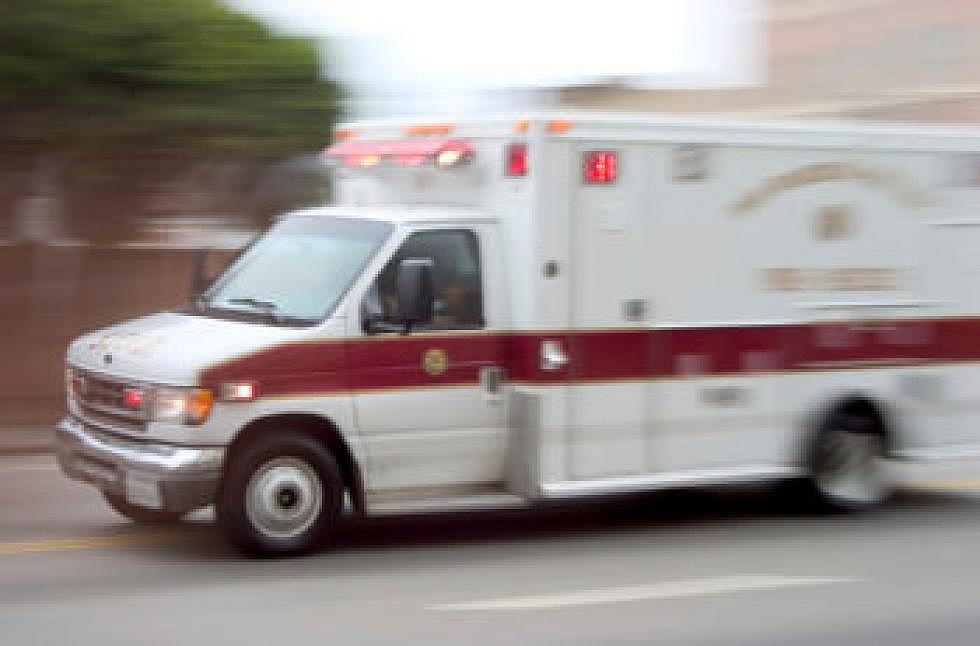
Missoula Fire Department seeks ambulance purchase to cover gaps in emergency service
The Missoula Fire Department plans to move forward with the purchase of an ambulance to cover occasional gaps in emergency transport service, saying an increase in call volumes and projected city growth warrant the move.
While critics, including the Missoula Chamber of Commerce, believe that a city ambulance would compete with the privately operated Missoula Emergency Services Inc., Missoula fire Chief Jason Diehl says that's not the intent.
Rather, he said, a city ambulance will serve as an insurance policy.
“It's always been a concern of mine that we've never had transport capability if needed,” Diehl said. “We've had some acute instances in delays for ambulance transport of 10 to 20 minutes or more. Our call volumes keep going up every year.”
Diehl said MESI has met the requirements of its contract with the city by arriving on the scene of a medical call within 9 minutes or less 90 percent of the time.
But on occasion, Diehl said, firefighters have found themselves waiting for MESI to arrive. The fire department is on pace to surpass 9,000 calls this year and Diehl expects the volume to increase as Missoula grows both in population and size.
“Missoula Emergency Services runs quite a ways outside the city limits and they've only got so many resources,” Diehl said. “So when they're tapped out, our firefighters are waiting on scene for an ambulance to show up, and that's not good.”
The fire department's $250,000 request was approved in this year's budget – the cost covered entirely through fire impact fees already on hand, Diehl said.
Still, the request drew opposition from the Missoula Chamber of Commerce, which questioned the city's need to offer transport services in competition with the private sector.
Clint Burson, director of government affairs for the Missoula Chamber, said in a letter to the Impact Fee Advisory Committee that the current ambulance service has met the performance standards included in its contract with the city.
“The provider is currently meeting those requirements, indicating there is not a need for a competing service from the Missoula Fire Department,” Burson said. “The current provider has increased staff over the years as demand for service has increased. There is no indication that the current provider is not performing to the high standard negotiated by the city.”
Burson said the chamber supports local firefighters and is grateful for their work. However, he said, the fire department has failed to justify the need for an ambulance through data.
“Without evidence that the city's contracted EMS provider is falling short of meeting the needs of the community, there is no justification to fund the purchase of a new ambulance to directly compete with that private sector provider,” Burson said.
Diehl believes the criticism is off base and said the Chamber never spoke to him directly about the need for a city ambulance. His department has no intent to compete with MESI but rather, he added, it simply needs access to a back-up service.
“There's some paranoia out there that this is somehow going to compete with Missoula Emergency Services, and that's not the intent,” Diehl said. “Primarily, we'd use it to respond as a non-transport unit, just to medical calls. The only time it would transport is if there's an excessive delay or a mass-casualty incident.”
While the unit has not been purchased, Diehl said the city ambulance will provide medical standby for major structure fires, hazardous material incidents and other large-scale events, including wildfires and weekend activities that draw large crowds.
“We typically arrive, initiate care and transfer care to the MESI ambulance, but if there are instances of trauma, our paramedics may not transfer care but maintain care all the way to the hospital,” Diehl said.
“We work well together with MESI and they provide a good service, but we had a couple instances where the battalion chief was going to put the patient in the pickup and take him to ER. That's not a gold standard.”
